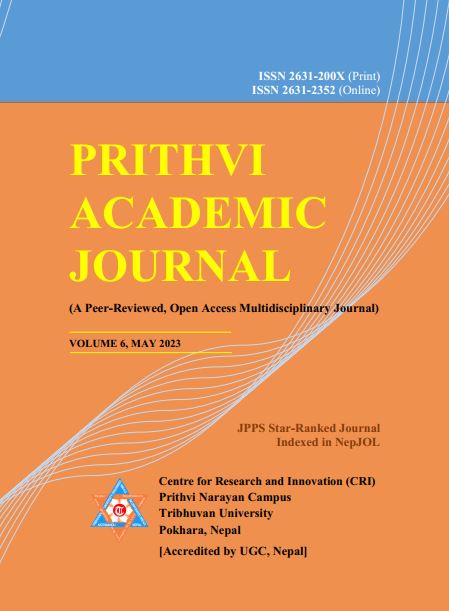Affective Commitment Among University Faculty Members in Nepal: A Structural Equation Modeling Approach
DOI:
https://doi.org/10.3126/paj.v6i1.54614Keywords:
Affective commitment, training and development, resources, pay satisfaction, perceived union supportAbstract
Although organizational commitment has received a substantial research attention, it has not been well examined in the higher education sector; in particular, the university faculty members’ affective commitment has not been extensively investigated yet. Thus, this study investigated an association between affective commitment and predictors: recognition, resources, training and development, perceived union support and pay satisfaction in the context of higher education system of Nepal. Data were collected through a survey from 312 management faculty members of Nepali universities and analyzed by using structural equation modeling. The findings confirmed that resources, training and development, and recognition were positively related, and perceived union support was negatively associated to affective commitment. Contrary to the expectation, pay satisfaction was not significant. The findings of this study also provide a salient reference background for the university management and policy makers to understand the importance of training and development, reward and compensation, resources, and union activities and their relevance for affective organizational commitment and job performance.
Downloads
Downloads
Published
How to Cite
Issue
Section
License
Copyright (c) 2023 Authors and Centre for Research and Innovation (CRI)

This work is licensed under a Creative Commons Attribution 4.0 International License.




